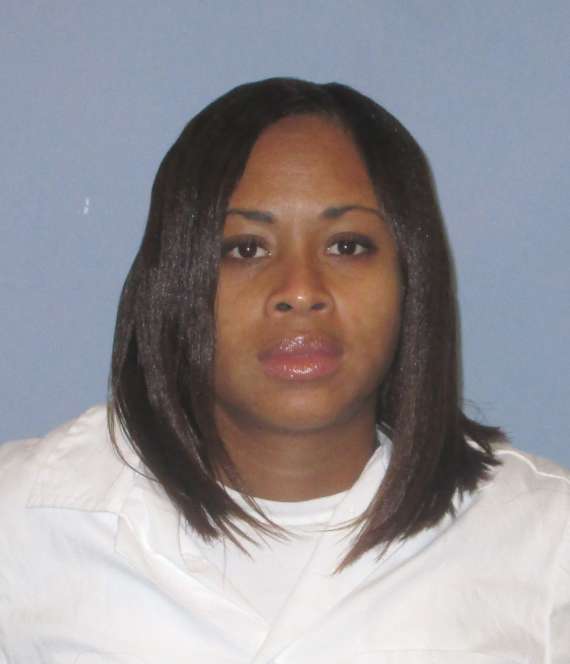
Evan Miller was fourteen years old when he murdered a man. According to court documents Evan and his accomplice sixteen year old Colby Smith attacked an elderly man and proceeded to beat the man unconscious then set the house on fire. This teen killer would be sentenced to life without parole. Miller lawyers would take the case all of the way to the Supreme Court who would rule that sentencing teens to life in prison without parole was unconstitutional
Evan Miller 2023 Information

Inmate: MILLER, EVAN
AIS: 00249484
Institution: ST.CLAIR CORRECTIONAL FAC.
Evan Miller Other News
Evan Miller rose to apologize to the family of his victim “for stealing the joy from your lives” as a three-day resentencing hearing ended today.
Miller is seeking a chance at eventual release five years after his case prompted the Supreme Court to strike down automatic life without parole sentences for juveniles.
He was 14 when he killed neighbor Cole Cannon in 2003, and the statement he read this afternoon was the first acknowledgment of guilt Cannon’s family has heard.
“Your dad, Cole Cannon, didn’t deserve what happened to him,” Miller said. He added, “I’m sorry for this whole ordeal. I’m sorry for taking a huge part of your family.”
But saying that “isn’t enough,” he continued. “I want to be more. I want to do more than just an apology. To be truly sorry, you have to make amends.” He expressed hope that the “chain of pain and hatred” could be broken, “and I can make amends.
“I’m sorry once again for stealing the joy from your lives,” he said.
Miller is asking an Alabama judge to revisit his sentence, which was automatically applied after his conviction on capital murder charges in 2006. He delivered his statement after lawyers for the Equal Justice Initiative, which took his case to the Supreme Court, presented their final witnesses. He didn’t give it under oath or subject to cross-examination — and Cannon’s family called it late and weak.
“That could have been done almost 14 years ago,” Cannon’s daughter, Candy Cheatham, told reporters afterward. “You can say words and not mean them, and that’s exactly what he did.”
Cheatham said Miller’s apology “is going to look good for him to say now, when he’s looking at a chance for a judge to give him a different sentence.”
“I don’t feel he accepted responsibility … I think the apology was coached, rehearsed and insincere.”
Miller, now 28, and another teen robbed Cannon and beat him with a baseball bat before they set his trailer ablaze and left him to die in the fire. Much of the testimony this week recounted Miller’s upbringing in a family rife with physical beatings, drug abuse and neglect.
The final witness, Dr. George Davis, connected that background to the development of the adolescent brain — the neuroscience that underpinned the Supreme Court decision in Miller v. Alabama and its predecessors.
Davis, the chief of psychiatry for New Mexico’s child welfare agency, said the part of the brain that guides rational decision-making doesn’t reach “dependable, functional capacity” until someone is in their late teens or early 20s. When complete, that frontal lobe and its prefrontal cortex inhibits impulsive, emotional reactions.
“You’ll get an inhibition of emotional overreaction,” he said. “You will get the capacity to plan ahead, to foresee consequences, to strategize about the best way to get something accomplished. The frontal lobe will also do things like take different kinds of facts or factors into account, compare them and decide between them.”
A 14-year-old “is still at the beginning of that process,” Davis said. And that development is complicated by neglect, abuse and drugs, which shadowed Miller’s entire life before the 2003 killing.
Under cross-examination, Assistant Attorney General Leigh Gwathney questioned why Miller ended up a killer while his older brother and sister didn’t. Davis said children from the same family often react differently to the same circumstances, but boys tend to respond much more aggressively than girls. And while Miller ultimately killed a man, Davis said he saw no pattern of violence from his behavior before his arrest — and saw signs of improvement in the records when he was taken away from his family, both in a 17-month stint in foster care and after the killing.
“There are times at which I looked at Evan’s record and thought that incarcerating him probably saved his life,” Davis said.
The Miller decision barred only the automatic application of life without parole for juveniles, which means Lawrence County Circuit Judge Mark Craig could pronounce the same sentence after this week’s proceedings. State prosecutors argued Miller earned that original sentence, and it should be reaffirmed.
Craig said he won’t issue a decision this week and will need some time to review the extensive documents and reports introduced as evidence. But he pledged, “I will do my best to render a just and appropriate verdict.”
Earlier, Miller’s lawyers put on a series of witnesses to demonstrate that he should get a chance at eventual release.
Miller’s onetime foster mother, Robin Brown, testified that Miller “understands what he did and that he had to be punished for it.”
“He’s hopeful and still young and has a lot of life possibly left in him, and he’s expressed a desire to do something good with it,” Brown said. When she mentioned that one day Miller might show some “forgiveness of himself,” Cannon’s relatives exchanged disbelieving looks on the opposite side of the courtroom.
Brown’s daughter, Tiffani Alldredge, testified Tuesday that Miller, his sister and brother were the only foster kids with whom her family kept in touch. Under cross-examination, Brown said she didn’t recall a fight in which Miller choked her then-preteen daughter or comments to the family’s social workers that she was ready to “give up” on all three children. She said the fight would have been documented as a matter of routine, “and of course that would have been addressed.”
A childhood friend, Patrick Hitt, described the Miller kids’ parental supervision as “nonexistent.” The family frequently was short of food, lacked power and once nearly died of carbon monoxide poisoning by trying to use a charcoal grill to heat the house indoors — a story Miller’s sister, Aubrey Goldstein, had recounted earlier.
“He should have stayed in foster care,” Hitt said. “In foster care, I wasn’t going to see him every day, but I knew he was being taken care of … I think if he was in foster care, he would still be out today and doing OK.”
Hope Berryman, a social worker who saw Miller regularly in the months before the killing, said Miller had been diagnosed with attention deficit hyperactivity, conduct and substance abuse disorders. She called him intelligent, but less mature than other kids his age.
Both Miller and his mother would be visibly intoxicated in some of their meetings, and Miller had “explosive” emotional outbursts — but she was “shocked and disappointed” when she heard her client had been charged with capital murder.
“I had never seen any indication that Evan would have done what was done that night, and I felt disappointed that I had not been able to be more of a catalyst for change in his life,” Berryman said.
Prosecutors have tried to punch holes in the defense by pointing out Evan Miller had racked up a series of violations in his decade-plus in prison. They include discipline for possession of contraband items like paint, cigars and cellphones, which Assistant Attorney General Leigh Gwathney said Miller once used to send a nude video of himself to a contact outside the walls.
But David Wise, Miller’s former warden, said Evan Miller wasn’t one of his big concerns at the maximum-security St. Clair lockup, outside Birmingham.
“Although it’s not perfect, it’s my opinion that a lot of his disciplinary history is on the lines of a mischievous child in high school,” Wise said. While Evan Miller broke some rules, “which is not good,” he wasn’t involved in violent incidents — which Wise called “a way of life” among the prison’s roughly 1,200 inmates.
Evan Miller is housed in an “honor dorm” for prisoners who have exhibited good behavior and have been on a maintenance detail. Barry Black, who teaches welding to inmates at St. Clair, said Miller “always has a good attitude” and is “always respectful to me and other people.”
While inmates serving life without parole aren’t eligible to take vocational classes in Alabama prisons, Black said he knew Evan Miller because he has been on a maintenance detail at the prison, and Black has been teaching him to weld on the side.
“He came into this system at a young age. I really don’t know how he’s turned out as well as he has, to be honest with you,” Black said. He said he’s never before testified on behalf of an inmate, but “I feel like Evan deserves another chance.”
Evan Miller Resentencing
Evan Miller was just 14 when he committed the slaying that sent him to prison.
In reviewing his case, the U.S. Supreme Court banned mandatory life without parole sentences for juveniles — saying judges and juries should consider the special factors of youth — a decision that eventually led to inmates across the country getting a chance at release.
But Miller will not get that chance. A judge on Tuesday handed down a second life sentence without possibility of parole.
Lawrence Circuit Judge Mark Craig ruled that Evan Miller, despite being a young teen when he committed his crime, met the legal criteria to be sentenced to life in prison without the chance of parole. Craig said the severity of Miller’s crime outweighed the mitigating factors of Miller’s age and his abuse-filled childhood that the defense argued made him deserving of an opportunity of a chance to get out of prison some day.
Craig said a sentence of life without the possibility of parole was the “only just sentence” over the lesser punishment of life with a chance of parole after 30 years.
Miller was 14 in 2003 when he and another teen beat Cole Cannon with a baseball bat before setting fire to his trailer, a crime for which he was originally sentenced to a mandatory life sentence.
Before handing down the sentence, Craig repeated the line that Miller was attributed with saying before he delivered a final blow to Cannon: “I am God. I’ve come to take your life.” Craig said those were some of “the most chilling words I have heard.”
Craig said he was not convinced Miller could be rehabilitated and noted that Miller was the primary aggressor in the slaying.
“Had you not made the decisions that night, Mr. Cannon, in my view, would still be alive,” Craig said. “You showed cunning, not clumsy, rash thinking.”
Miller, now 32, appeared during the hearing, which was conducted virtually, by video link from an office at the Alabama prison where he is incarcerated. He did not visibly react as the sentence was read.
The Supreme Court in 2012 ruled in Miller’s case that mandatory life without parole for those under the age of 18 at the time of their crimes violates the Eighth Amendment’s prohibition on cruel and unusual punishment. In the 2012 opinion in Miller’s case, justices ordered that judges and juries should consider “children’s diminished culpability, and heightened capacity for change” should make such sentences “uncommon.”
“Miller’s stepfather physically abused him; his alcoholic and drug-addicted mother neglected him; he had been in and out of foster care as a result; and he had tried to kill himself four times, the first when he should have been in kindergarten,” the court wrote in the majority opinion.
While other juvenile lifers across the country have seen their sentences reduced because of Miller’s case and a later ruling that made the decision retroactive, his own case had lingered without a decision until Tuesday.
At an earlier resentencing hearing, Miller’s lawyers cited his childhood of physical abuse and neglect and argued that at 14, his brain was not fully developed.
The Equal Justice Initiative, which has represented Miller, did not immediately comment on the decision.
Alabama Attorney General Steve Marshall said the judge, “restored the punishment that is fitting for Evan Miller’s wicked actions.”
“When Evan Miller robbed and savagely beat his neighbor, setting fire to the man’s trailer and leaving his incapacitated victim to die a horrible death, he earned a well-deserved sentence of life in prison without parole,” Marshall said in a statement.
Cannon’s daughter, Candy Cheatham, had previously called Miller’s apology for the slaying “empty words.”
The Supreme Court had been moving toward greater mercy for juveniles over more than a decade, first ending the death penalty for people under 18 and then reducing the universe of people who could get life without parole sentences for crimes they committed as juveniles. But in a departure from that trend, the court last week held that judges do not have to determine that a juvenile offender is beyond hope of rehabilitation before ruling that he should spend the rest of his life in prison.
https://www.courttv.com/news/juvenile-lifer-who-set-precedent-sentenced-to-life-again/
Frequently Asked Questions
Evan Miller Now
Evan Miller is currently incarcerated at the St Clair Correctional Facility
Evan Miller Release Date
Evan Miller is serving life without parole



